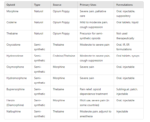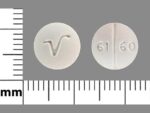How long does morphine stay in the system?
The metabolites of morphine remain in the body even after a person no longer feels the drug’s effects.
People undergoing morphine drug testing should ask about the sensitivity of the test. The more sensitive the test is, the more likely it is to detect morphine. Highly sensitive tests may also produce false positives.

Blood
Blood tests for morphine show a negative result more quickly than other tests. This is because morphine reaches peak blood concentrations within 1 hour or so of use.
The body quickly metabolizes the drug, and the half-life, or the time it takes for the body to metabolize half of the dose, is just 1.5–4.5 hours.
The half-life length of morphine means it will usually exit the blood within several hours, and a blood test will almost always be negative within a day or two.
Urine
Morphine exits the urine relatively quickly. Depending on the size of the last dose, a person’s metabolism, how much water they consume, and similar factors, a urine sample is usually negative within 12–36 hoursTrusted Source.
Urine morphine samples test for all opioids and are very sensitive. False positives are common. Some evidenceTrusted Source suggests that consuming even a single poppy seed may trigger a positive test result.
Breast milk
Morphine can enter breast milk, but the quantity of the drug and the length of time it remains there depends on the dosage and other factors.
An analysis of lactating mothers who received morphine in an epidural found that concentrations of the drug peaked 30 minutesTrusted Source after the last drug dose. The half-life in milk was 3 hours.
Another study of women who received morphine in their epidurals assessed breast milk levels of the drug at various intervals. Morphine concentrations were highest 3.2 hoursTrusted Source after the dose. By 24 hours, there was no detectable morphine in the milk.
Women who may be taking morphine while breastfeeding should talk to their doctor about the safety of using this drug while breastfeeding.
Hair
Morphine remains in the hair longest. As the hair grows, new hair growth may not have evidence of morphine use, but older hair may show signs of morphine use for an extended time.
A 2016 study found that morphine was still detectable in hair 90 days after a person stopped using it.
Many pregnant women and breastfeeding moms who use morphine aren’t aware of whether it is safe during breastfeeding and pregnancy or not. The article will help you know if morphine is safe for pregnant women and breastfeeding moms.

Morphine and Pregnancy
Published documents say that using morphine during pregnancy is not considered to be safe as morphine intersects the placenta, so if prescribed quite late during labour; it can affect your child’s breathing and cause drowsiness in baby for many days after birth. The baby should be monitored for symptoms of morphine immediately after birth in a separate unit. The side effects of morphine seen in pregnant women are
- Restlessness
- confusion
- drowsiness
- hot flushes or heart palpitations
- vertigo
- disturbed vision
- Some women often say that they forget of their baby being born because of the drowsy state induced by morphine.
Prolonged morphine consumption by woman during last three months of pregnancy, regardless of morphine dose can lead to a withdrawal syndrome in new born baby followed by convulsions, vomiting, irritability or enhanced lethality. Therefore morphine is not recommended during pregnancy for mother as well as the baby.
In case you are using morphine occasionally in high doses, chronic treatment and neonatal monitoring is advised to prevent the related risks of withdrawal symptoms and respiratory depression in new born baby.
It is fine if you use low doses of morphine for a short term, especially during your first trimester. If your doctor is aware about your pregnancy and recommends appropriate doses of morphine, then you do not need to worry. Also if your test reports, scans are perfect, it is safe to use morphine.
Certain studies do not indicate any signs of complications even if morphine is used for a prolonged period and doesn’t lead to any effects on your baby or any birth defects, health problems that lasts long, so you need not worry.
Morphine and Breastfeeding
Morphine passes into breast milk and breastfeeding should be stopped while you are on this medication. During breastfeeding, withdrawal symptoms are seen in new born babies when you stop using morphine.
It is always better to avoid the use of morphine while breastfeeding so that it doesn’t harm your baby. Do not use morphine in large amounts or get into drug addiction. Speak to your doctor if he can recommend you other alternative non narcotic medications to relieve pain.
Babies born on drug dependency might need medical treatment for a long period of time. To avoid the fatal withdrawal symptoms in your baby, make sure you do not get addicted to the drug.
Speak to your doctor if you are pregnant or breastfeeding before you use morphine. Your doctor can decide or suggest dose adjustments to help you use the drug safely. Doctor can help you know about other alternative treatments to relieve pain so that morphine doesn’t affect you and your baby’s health.
Do not ignore the side effects of morphine that can cause harm to your baby.
Pain Medications, Pain Relief, and Pain Management








